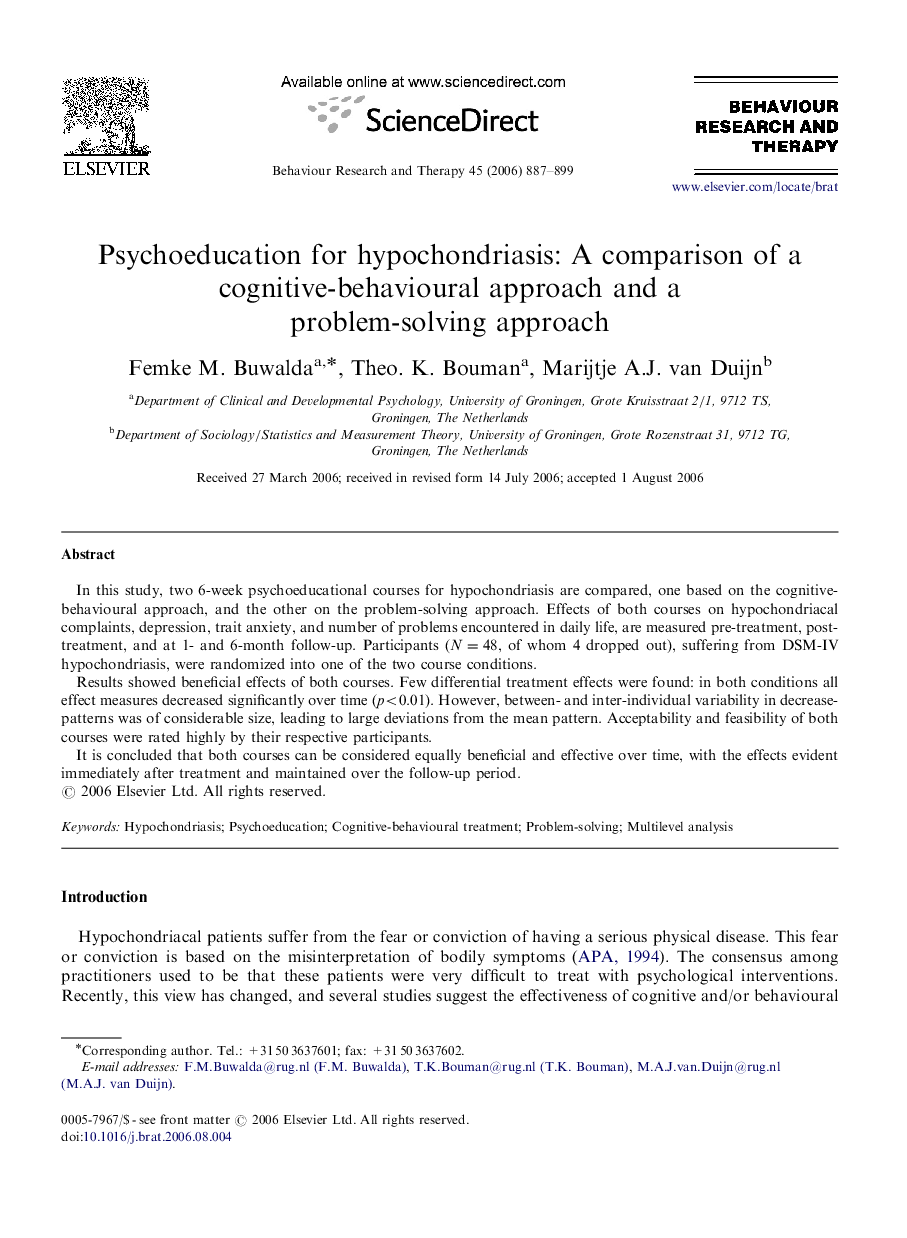| Article ID | Journal | Published Year | Pages | File Type |
|---|---|---|---|---|
| 902330 | Behaviour Research and Therapy | 2007 | 13 Pages |
In this study, two 6-week psychoeducational courses for hypochondriasis are compared, one based on the cognitive-behavioural approach, and the other on the problem-solving approach. Effects of both courses on hypochondriacal complaints, depression, trait anxiety, and number of problems encountered in daily life, are measured pre-treatment, post-treatment, and at 1- and 6-month follow-up. Participants (N=48N=48, of whom 4 dropped out), suffering from DSM-IV hypochondriasis, were randomized into one of the two course conditions.Results showed beneficial effects of both courses. Few differential treatment effects were found: in both conditions all effect measures decreased significantly over time (p<0.01). However, between- and inter-individual variability in decrease-patterns was of considerable size, leading to large deviations from the mean pattern. Acceptability and feasibility of both courses were rated highly by their respective participants.It is concluded that both courses can be considered equally beneficial and effective over time, with the effects evident immediately after treatment and maintained over the follow-up period.
